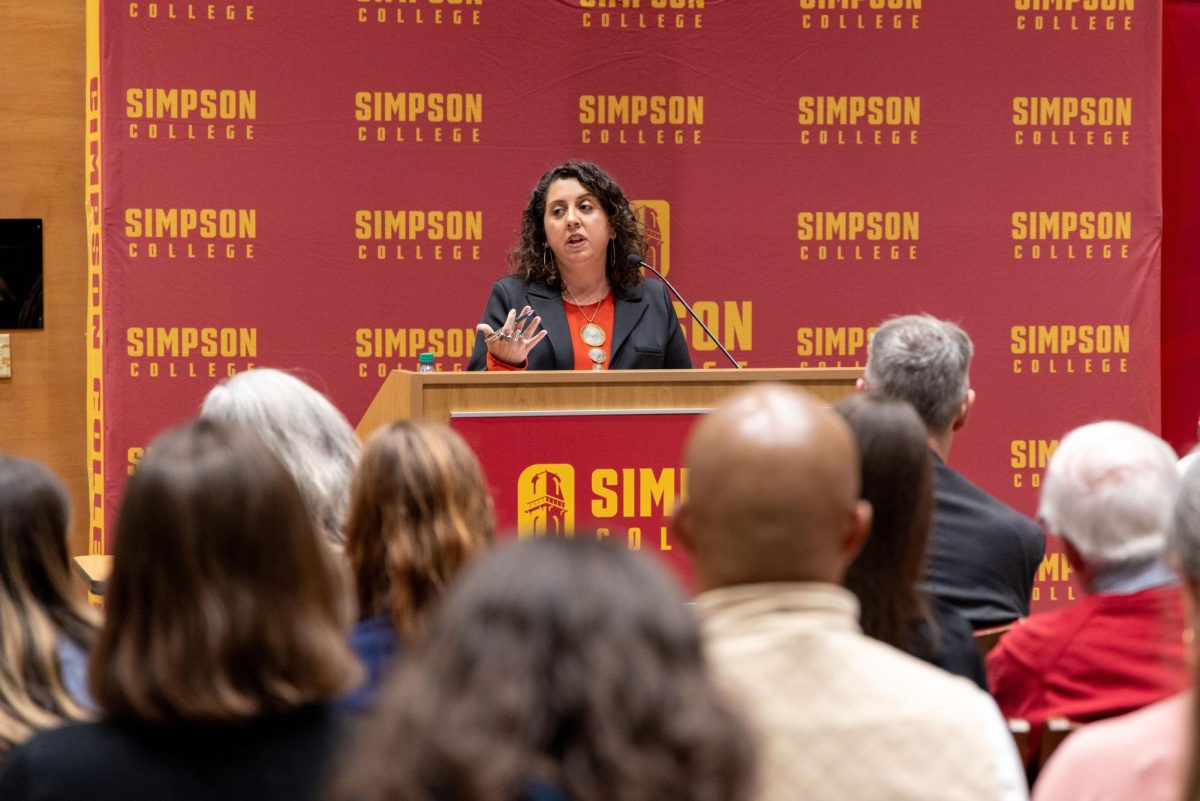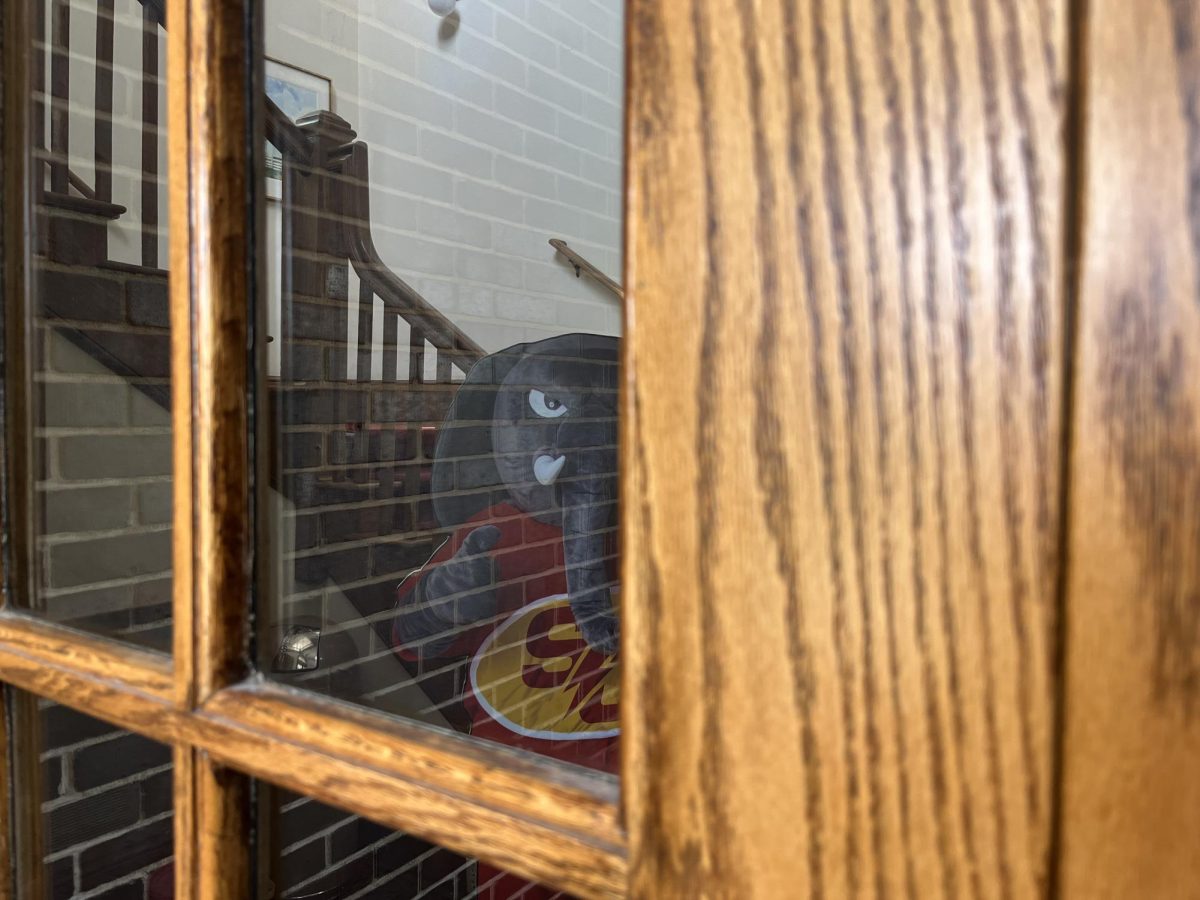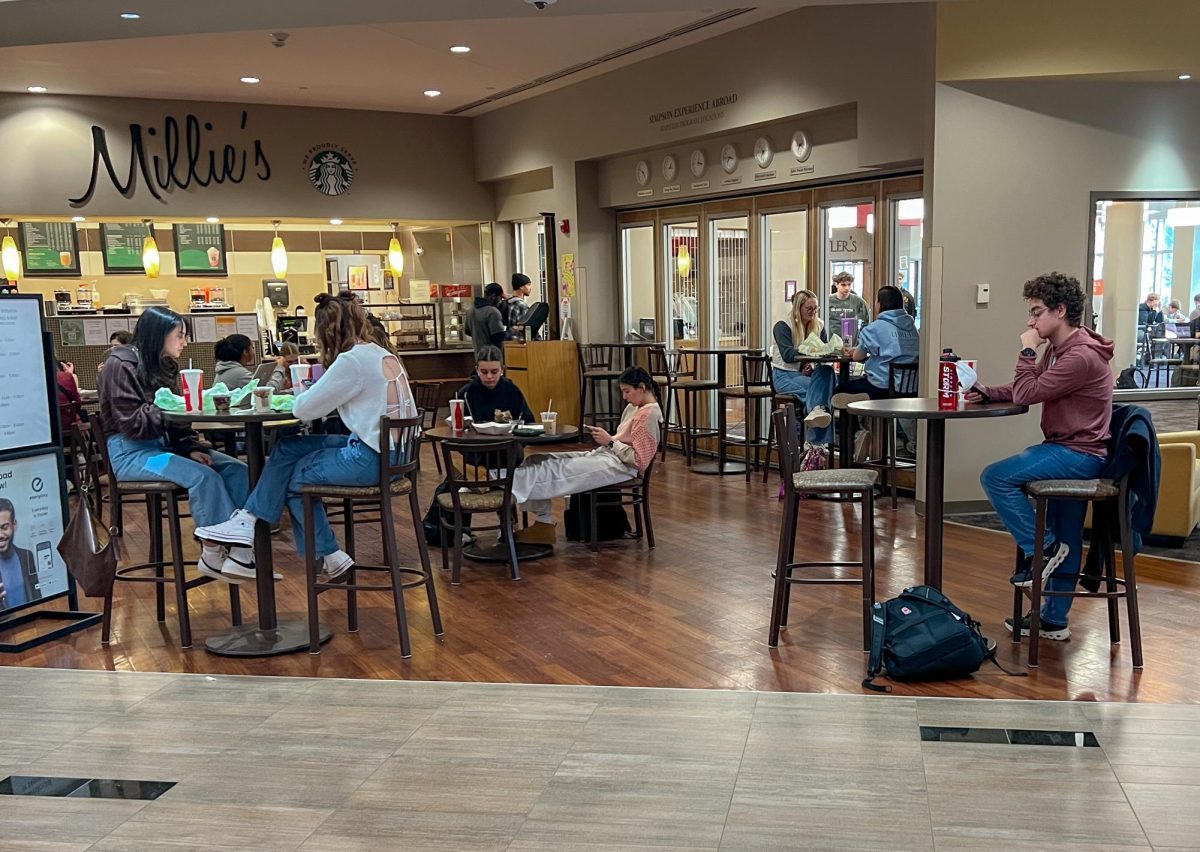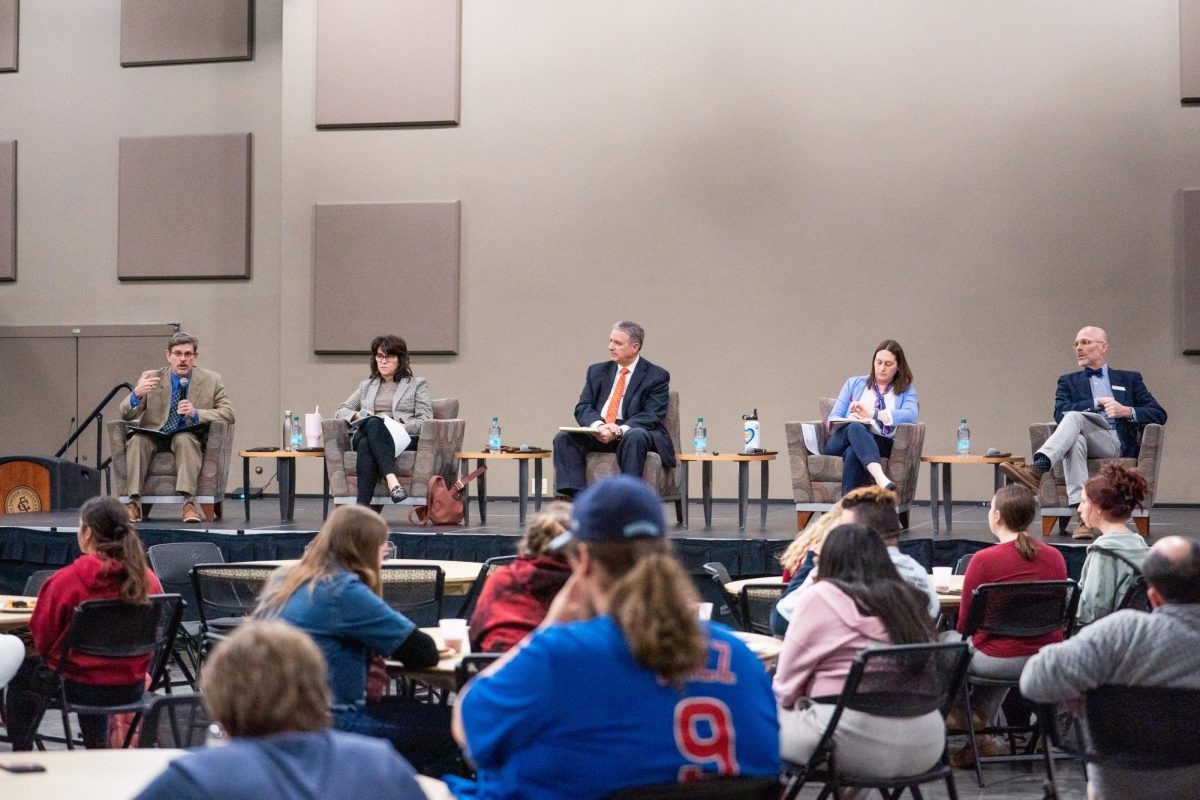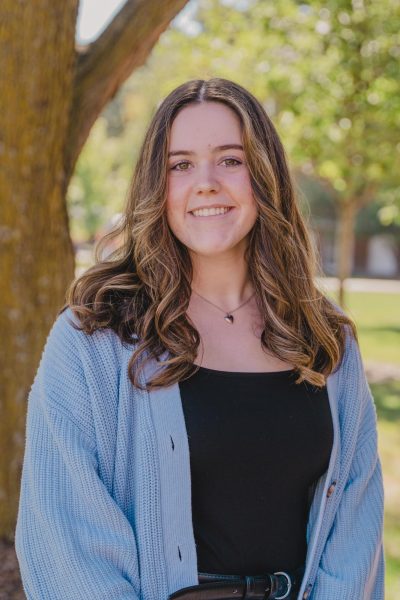The 14th annual Culver Lecture welcomed New York Times national political correspondent Jennifer Medina to Simpson College on April 3, who delivered insights into the shifting political landscape and identities of Latino voters in the United States.
Hosted by the John C. Culver Public Policy Center, the lecture is considered one of the signature academic events of the year. Medina, whose reporting focuses on Latino political behavior, addressed a packed Hubbell Hall with students, faculty and community members.
“This is not a politics center, it’s a public policy center,” Seth Andersen, executive director of the Culver Center, said. “The goal of this lecture is to engage the Simpson community in meaningful, bipartisan civic discussion.”
During the lecture, Medina emphasized that Latinos are the fastest-growing ethnic voting bloc in the U.S., with 36 million eligible voters in 2024. Yet their political allegiances are neither fixed nor predictable.
“Latinos are not a monolithic group,” Medina said. “Their political views are shaped by personal context—economic status, education, religion and geography. There are millions of Latino voters, but there is no one Latino vote.”
She explained that many working-class Latino voters prioritize economic concerns over party loyalty and increasingly express skepticism toward government institutions. Medina urged political leaders to move beyond broad messaging and instead engage with communities more directly.
“The willingness of voters to talk about those complications is endlessly fascinating and motivating to me,” Medina said. “There’s so much more to understand if we just take the time to really listen.”
As Latino voters continue to grow in political influence, particularly in states such as Nevada, Texas and Arizona, Medina’s research and reporting seek to ensure their voices are not only heard but understood.
“What sets Jennifer apart is that she reports from the ground up,” Andersen said. “She focuses on how policy affects real people, not just on political strategy or polls.”
Rather than relying solely on polling data or campaign rhetoric, she focuses on the lived experiences of everyday Americans.
“I really wasn’t—and I would argue, still am not—a political junkie,” Medina said. “But I am really interested in politics and government. My main question is: How does policy affect people’s lives?”
During the Q&A portion of the lecture, Culver Fellow Allison Sigaran-Serpas asked whether political misinformation has a greater impact on Latino populations. Medina responded that there is no evidence that Latinos are more susceptible to misinformation than other groups. However, she emphasized that social media and targeted messaging do play a significant role in shaping voter perceptions across communities.
She also addressed questions about religion and political identity, noting that while some Latino communities are shifting from Catholicism to evangelical Christianity, these changes don’t neatly map onto political affiliations.
For the first time in Culver Lecture history, live Spanish interpretation was available, provided by graduate students from Simpson’s World Languages and Cultures department. Attendees also had access to ASL interpretation and a Zoom stream.
As a graduate of the University of Southern California with a degree in journalism and political science, Medina began her career at the Times as an intern. She has since reported on immigration, economics, natural disasters and education before joining the political desk in 2019. Since then, she has interviewed over 1,000 Latino voters across more than a dozen states.
Her forthcoming book, begun in 2022, draws on that research to explore Latino voters as a bellwether in American politics.
“The book is looking at Latinos as an American story,” she explained. “It’s exploring how people assimilate politically into the place where they live and the time they grow up in.”
As she returns to writing, Medina hopes her work will challenge generalizations and deepen public understanding. Her goal is to push back against the idea that demographics alone dictate political behavior and to help people see through the lens of Latino political experiences.
“I’m really hoping that people come away with understanding that we can’t flatten each other into just labels and presume what people think based on them,” Medina said. “Latinos are completely central to the American political story, and we have a lot to learn by listening to people with complicated views.”
Medina’s lecture affirmed the Culver Center’s mission: fostering thoughtful, nonpartisan conversations about public policy.
“Focus on what’s actually happening,” Andersen said. “Reported by independent, nonpartisan journalists—regular journalists, who don’t have an agenda.”
This year’s lecture inspired critical conversations about public policy in a rapidly changing democracy.



